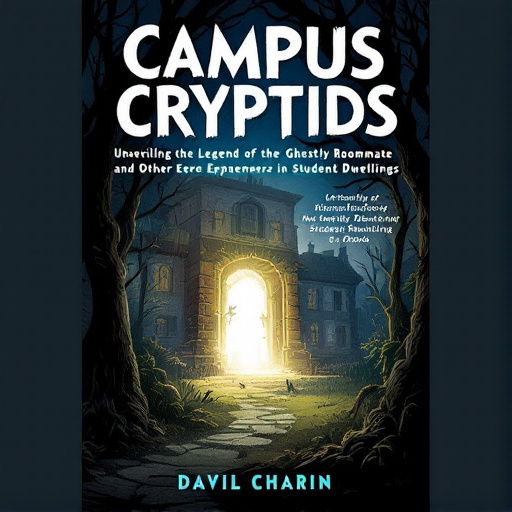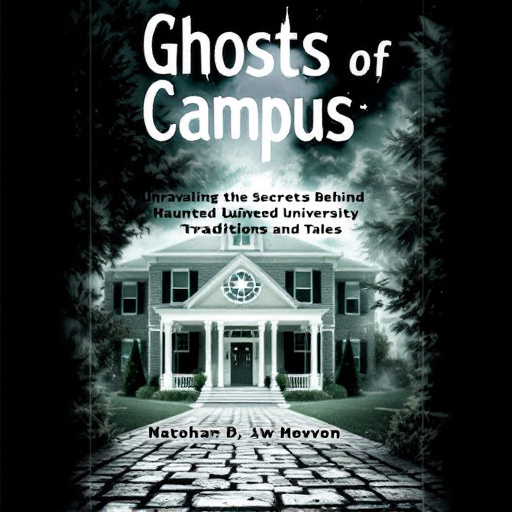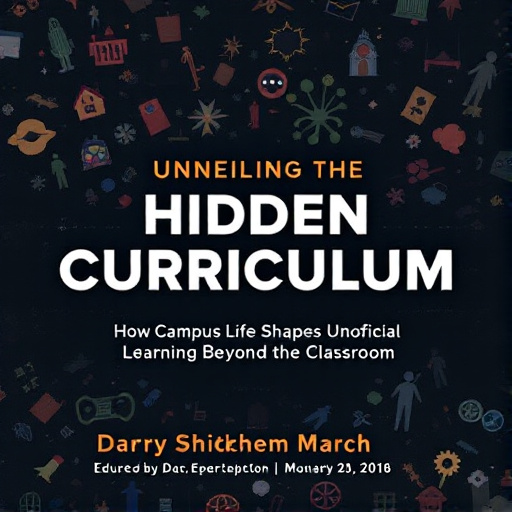Featured Articles
- Bizarre Dorm Decor: How Quirky Aesthetics Are Redefining Campus Living Spaces
- Campus Cryptids: Unveiling the Legend of the Ghostly Roommate and Other Eerie Ephemera in Student Dwellings
- "From Dorm to Digital: How Virtual Reality is Redefining Campus Hangouts and Social Interactions"
- "Ghosts of Campus: Unraveling the Secrets Behind Haunted University Traditions and Tales"
- "Silent Study Zones: The Rise of Soundless Spaces for Mental Clarity in Chaotic Campus Life"
"Ghosts of Campus: Unraveling the Secrets Behind Haunted University Traditions and Tales"
"Ghosts of Campus: Unraveling the Secrets Behind Haunted University Traditions and Tales"
From secret societies to spectral sightings, universities are steeped in stories that bind their communities together. In this exploration, we unravel the ghostly traditions, chilling tales, and the cultural significance behind haunted campuses that echo with laughter and lore.
The Allure of Haunted Universities
There’s an undeniable allure to haunted universities. While students at prestigious institutions often revel in the brilliance of academia, they also cook up stories that awaken the spirits lurking in their historic buildings. Ghost stories have become a rite of passage for many, creating a cultural glue that binds students from different backgrounds. According to a survey conducted by the American College Health Association, around 62% of college students enjoy sharing spooky tales by campfires or during dormitory sleepovers, demonstrating the social significance that horror narratives have even outside traditional classroom settings.
Traditions Born from Terror
Every university boasts its unique ghost stories and haunted traditions that often span decades—or even centuries. Take Yale University, for example. It features the infamous "Yale Ghost Stories Night," where students gather to share their spine-tingling encounters in the cloisters of the Old Campus. The tradition, initiated in the early 1990s, has become a cherished occasion for students to bond over shared fears. Many students leave the event swearing they feel watched during late-night walks through the darkened campus.
Unearthing the History of Haunted Halls
Digging deeper, the roots of many campus ghost stories often lead back to real events. Let’s take a closer look at the University of California, Berkeley, home to the legendary spirit of the “Berkeley Ghost,” said to be the spirit of a young woman who tragically died in the 1800s. The tale recounts how she roams the campus seeking knowledge. Ghost tours capitalize on her history, drawing hundreds of students and visitors who want to connect with the spectral academia.
Case Study: The Lovable Ghost of College Park
At the University of Maryland, the tale of “The Ghost of College Park” continues to haunt the living. Legend has it that a former student, Alice, took her own life after not qualifying for the school’s elegant sorority, Kappa Delta. Its legacy endures today, with students claiming to spot Alice’s apparition wandering the campus grounds—often at night, wearing a vintage white dress, still searching for belonging. Interestingly, a 2017 article in the Maryland Daily Record noted that ghost sightings usually spike during midterms, suggesting that stress may be contributing to the ghost’s unrest.
Statistics Behind the Spooky
One might wonder if campus ghosts are merely the byproduct of heightened imagination. Nevertheless, studies suggest otherwise. A 2020 study published in the Journal of Paranormal Psychology reveals that about 30% of college students surveyed reported having experienced ghostly encounters. This statistic sheds light on a broader cultural phenomenon where tales of the paranormal serve not only as entertainment but also as a coping mechanism—helping students deal with the oftentimes overwhelming stress of college life.
Ghost Tours: More Than Just Scares
Among the most engaging aspects of haunted traditions at universities are ghost tours. These tours cleverly intertwine folklore with historical fact, drawing students into a narrative that makes the past come alive (or perhaps, die alive?). Georgetown University offers a thrilling ghost tour, led by spirited students who share tales about the school’s haunted chapel and the ghost of a priest who supposedly walks the grounds on foggy nights. The tour not only entertains but also educates participants about the rich history of the university.
The Role of Secret Societies
Another layer of ghostly lore is heavily associated with secret societies that have thrived on university campuses for centuries. Take the Skull and Bones society at Yale. Speculation abounds regarding the spiritual connections of its members, as this elite society is rumored to engage in rituals that attract various supernatural entities. While stories of clandestine meetings and mysterious symbols abound, their true impact on campus culture remains shrouded in secrecy.
Narratives that Shape the Community
Such stories have a profound impact. They create a sense of belonging and identity among students as they share tales that evoke laughter, tears, and thrills. A casual survey among students at the University of Texas revealed that around 4 out of 5 students identified with the haunted tales surrounding their campus, even if they had never personally witnessed anything supernatural. It’s an experiential phenomenon that fosters community spirit and enhances the larger collegiate narrative.
A Lighthearted Look at the Afterlife
Ghost stories can often take on a humorous tone, especially in university settings. One popular jest is that if you hear “the dorm ghost” moaning late at night, it’s likely just a student too stressed about exams. This light-hearted interpretation allows students to find humor in fear, thereby easing the tension surrounding academic pressures. After all, what’s scarier than finals week? It's this cultural spin that keeps ghost stories relevant long after the spectral sightings fade into the fog.
The Science Behind the Supernatural
As a counterpoint to the whimsical, some students take a more scientific approach to ghost tales. Research exploring the psychology behind paranormal beliefs suggests that these experiences provide comfort through cultural narratives that allow individuals to grapple with uncertainty and fear of death. A 2021 study published in the Psychology of Consciousness: Theory, Research, and Practice suggests that many individuals who firmly believe in the paranormal often do so to make sense of human loss and grief. University settings become fertile ground for these explorations.
Conversations About Fear and Belonging
For many, ghosts symbolize more than just a spectral presence; they represent the emotional undercurrents of college life. Conversations around haunted traditions can prompt discussions about acceptance, fear, and the ways students confront the specters of failure and success. After all, college is often a battleground of conflicting emotions—trying to fit in while juggling studies, and balancing fun with responsibilities. Understanding these tales provides valuable insight into the psychology of belonging, affirmations of identity, and shared community experiences.
Final Thoughts: Unraveling the Mystery
As we conclude, it becomes clear that the ghosts of our campus weave through history, stories, and shared experiences. They breathe life into university traditions while engaging students in emotional dialogues about belonging in a rapidly changing world. As you wander through your campus, the whispers of the past may just lead you to an unexpected interaction with a ghostly guardian or an incredible story that bonds you to your school and peers.
Ultimately, whether you're a skeptic or a believer, the legends and lore surrounding haunted campuses remind us that behind every shadow is a tale waiting to be told—often bringing us a little closer together in the process.




